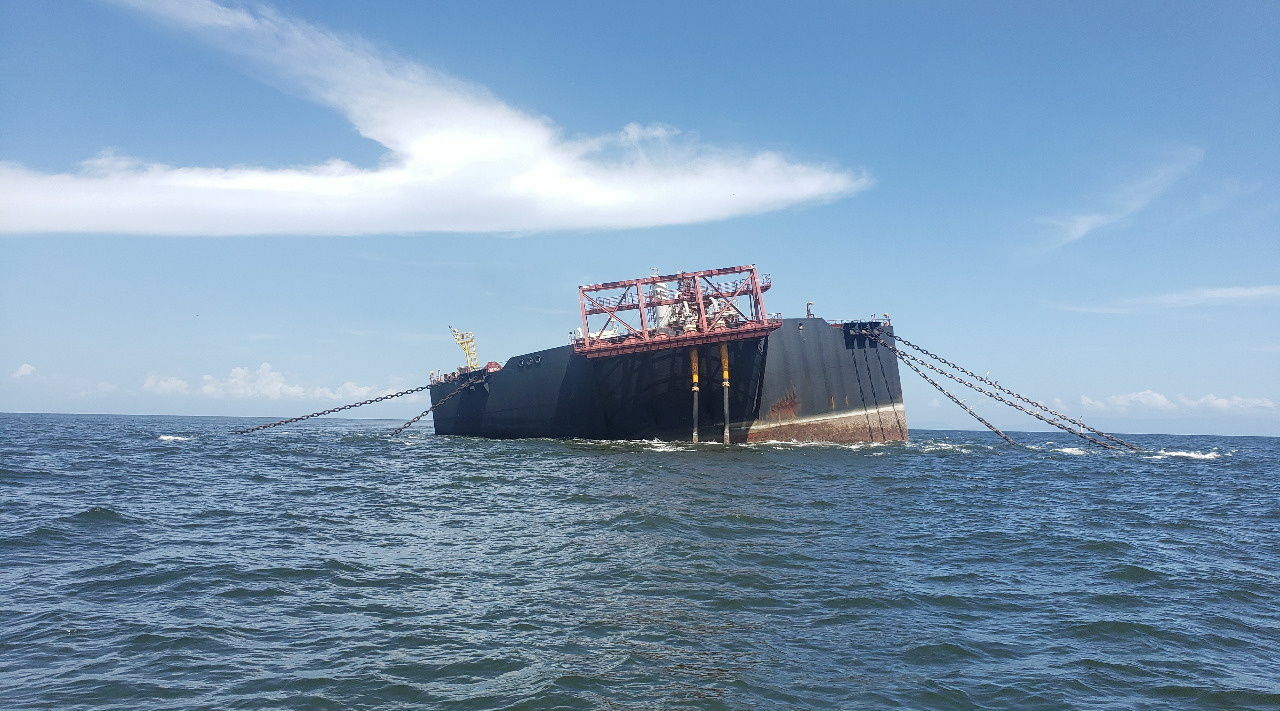Trinidad and Tobago Energy Minister: Venezuelan vessel is ‘upright’, crude transfer poses risks
Nabarima vessel carries 1.3 million barrels of crude
In recent weeks, an idle Venezuelan floating oil facility in the Paria Gulf had been under surveillance by concerned governments and environmentalists. Images in recent months of the vessel leaning to its side have raised such concern.
After careful investigation, the energy minister of neighboring Trinidad and Tobago tells Reuters that the Nabarima, a 264-metre (866-foot) floating storage and offloading facility (FSO), proves to be erect and to have no sign of sinking. However, plans to offload the crude from the vessel pose some potential risks.
The oil facility was inspected by a team of experts from Trinidad and Tobago earlier this week and found there was “absolutely no tilt” and that the ship was “totally horizontal,” Energy Minister Franklyn Khan told reporters.
“There is no imminent risk of tilting or sinking,” Khan stated.
He added that the team had spent more than three hours surveying the vessel and had asked Venezuelan authorities to visit it again in one month.
Nabarima is loaded with 1.3 million barrels of Corocoro crude. It belongs to the Petrosucre joint venture between Venezuela’s state-run oil company Petroleos de Venezuela [PDVSA.UL] and Italy’s Eni SpA ENI.MI.
The vessel has been idle since the United States sanctioned PDVSA in early 2019, as part of a ruse to overthrow President Nicolas Maduro.
According to a company document obtained by Reuters, PDVSA plans to offload some of the crude to its Icaro Aframax tanker, which is scheduled to transport 550,000 barrels of Corocoro to western Venezuela’s Amuay port.
A close source to the matter says that the oil company plans to do this by transferring Nabarima’s 10,000 barrels of crude per day to Icaro, via the Inmaculada barge.
Energy Minister Khan estimated the process would take 30 to 35 days.
“The Venezuelans are doing the proper thing by attempting to offload the vessel,” Khan said. “The extended period for the offload in itself poses a slight risk, although the operation is deemed to be safe.”
PDVSA did not reply to a request for comment.



